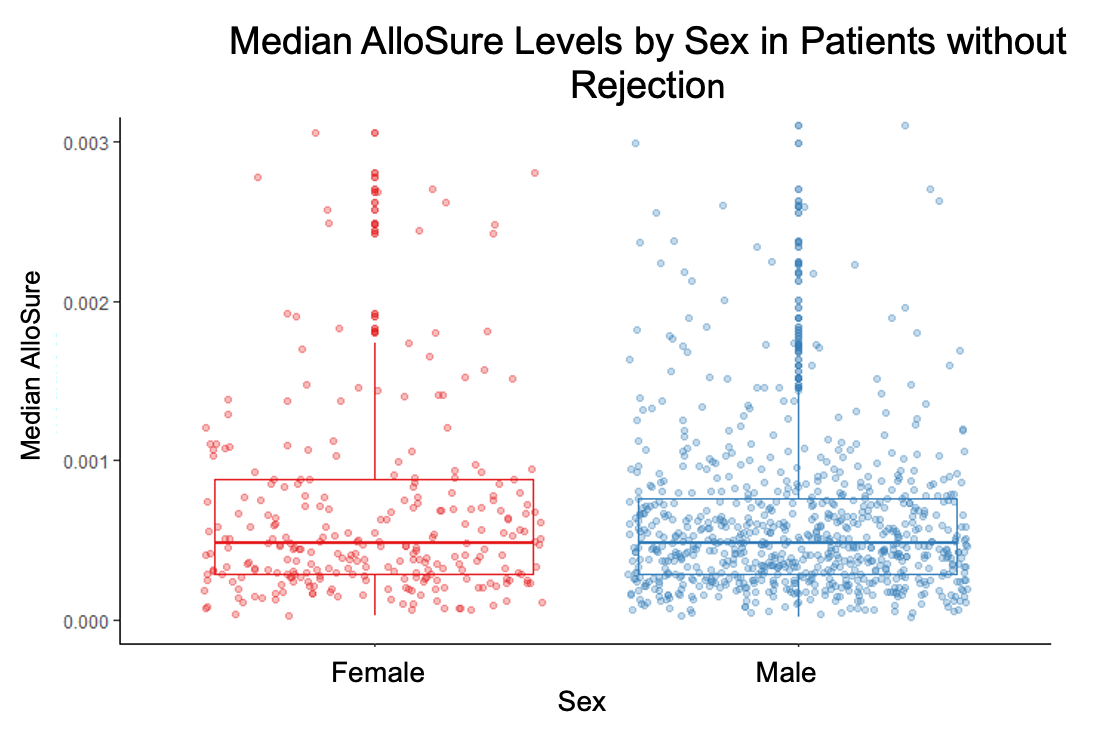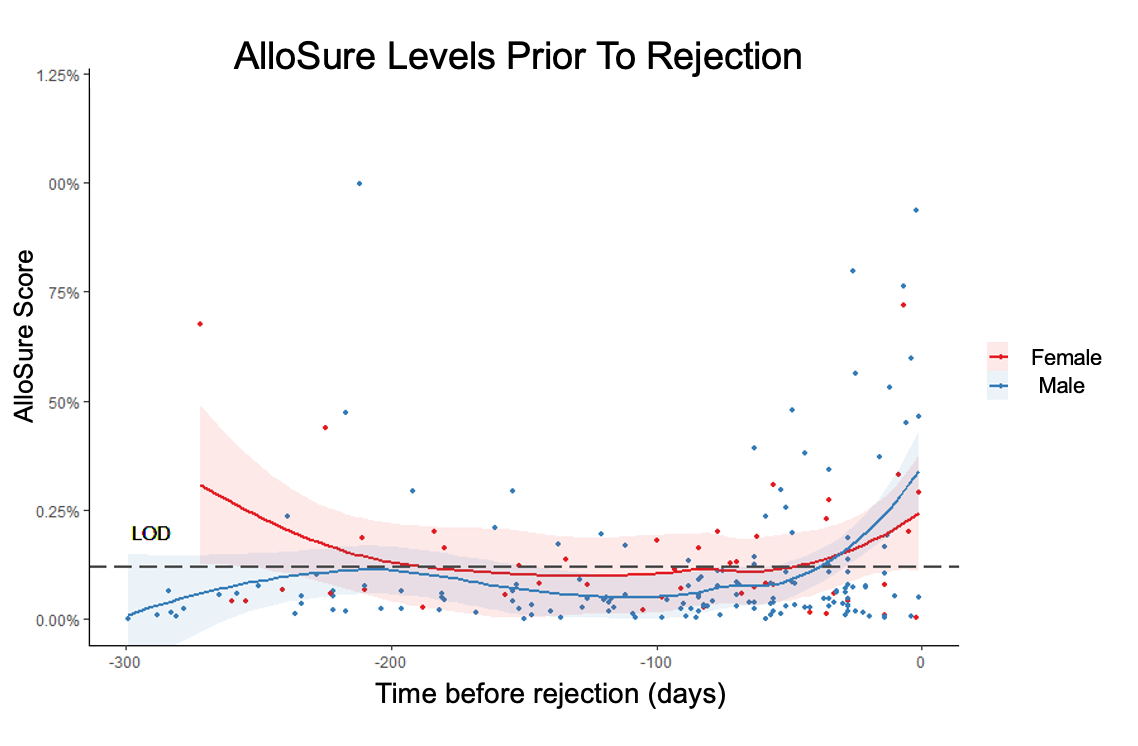The Use of Donor-Derived Cell-Free DNA in Female and Male Heart Transplant Recipients: A Sex-Specific Analysis of the Surveillance Heartcare Outcomes Registry
1Columbia University Irving Medical Center, New York, NY, 2CareDx, Brisbane, CA, 3David Geffen School of Medicine at UCLA, Los Angeles, CA, 4Ronald Reagan UCLA Medical Center, Los Angeles, CA, 5Tufts Medical Center, Boston, MA
Meeting: 2022 American Transplant Congress
Abstract number: 1134
Keywords: Heart, Heart transplant patients, Multicenter studies, Rejection
Topic: Clinical Science » Heart » 63 - Heart and VADs: All Topics
Session Information
Session Time: 7:00pm-8:00pm
 Presentation Time: 7:00pm-8:00pm
Presentation Time: 7:00pm-8:00pm
Location: Hynes Halls C & D
*Purpose: To investigate sex-specific donor-derived cell-free DNA AlloSure (AS) levels during allograft quiescence and rejection after heart transplantation.
*Methods: Sex-stratified data were obtained from the Surveillance HeartCare Outcomes Registry. Rejection was identified by routine biopsy and defined as grade 1-3 AMR/grade 2R-3R ACR. Wilcoxon rank sum test with continuity correction was used to compare median AS levels by sex, separately for subjects with no concurrent rejection, and for subjects with ACR or AMR and an AS sample within 90 days prior to diagnosis. Outcomes were compared by sex in the first year of follow-up, excluding 10 participants who died before reaching the composite endpoint.
*Results: Among 2029 participants (544, 26.8% women), 67.7% white, mean age was 56.7 years. A hepatitis C-positive donor was received by 8.5%. High-risk CMV status was noted for 58.1% of women and 53.5% of men. Among women, 56.1% received a female donor compared to 24.5% of men. Median AS levels were equivalent between men and women during quiescence (p=0.133)(Fig 1). A total of 132 participants (23.7% women) experienced a rejection episode; 49 had AMR, 77 had ACR, and 6 patients had both. There was no significant sex difference in AS levels (106 samples) within the 90 days prior to rejection diagnosis (Fig 2). At median of 357 days of follow-up, there was no significant difference between sexes for the composite outcome of rejection, new DSA, CAV, or reduction in LVEF by 25% (85 women, 17.7%; 260 men, 15.9%; log-rank p = 0.36).
*Conclusions: Female and male adult heart transplant recipients have equivalent percentages of dd-cfDNA during quiescence and rejection. These preliminary findings suggest that there are no sex-specific adjustments required when interpreting AS results for non-invasive routine surveillance of heart transplant rejection. Further investigation is required to assess the performance of AS for the identification of rejection in women compared to men.
To cite this abstract in AMA style:
DeFilippis EM, Fu Y, Burke R, Deng M, Kamath M, Jenkins LLourenco, Vest AR. The Use of Donor-Derived Cell-Free DNA in Female and Male Heart Transplant Recipients: A Sex-Specific Analysis of the Surveillance Heartcare Outcomes Registry [abstract]. Am J Transplant. 2022; 22 (suppl 3). https://atcmeetingabstracts.com/abstract/the-use-of-donor-derived-cell-free-dna-in-female-and-male-heart-transplant-recipients-a-sex-specific-analysis-of-the-surveillance-heartcare-outcomes-registry/. Accessed February 16, 2026.« Back to 2022 American Transplant Congress


